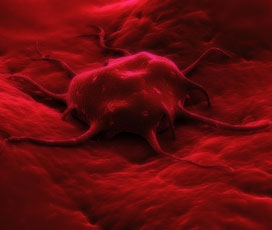Prostate cancer patient gets a longer and better life
A 62-year old prostate cancer sufferer had his life extended by 18 years after voluntarily joining the Men’s Cancer Unit’s Intermittent Hormone Therapy Trial (IHT) at Barts and The London Cancer Centre.

Now 80 years of age, William Fletcher of Rainham in Essex was 62 when first diagnosed with prostate cancer. He said: “I have been incredibly lucky and immensely fortunate to have enjoyed a longer and better life than might otherwise have been possible because of the new knowledge gained by the Men’s Cancer Trial Unit.”
William became one of the first volunteers to join Barts’ original trial of Intermittent Hormone Therapy (IHT) following radiotherapy when his cancer had spread from the prostate, throughout the lymph glands into his abdomen and chest.
In 1991, and still today for many patients, the standard treatment was a course of continuous hormone therapy to suppress the production of testosterone permanently, a known factor in the early development of the disease.
As a result of his work on the intermittent hormone method in the UK, the Unit’s lead oncologist, Professor Tim Oliver, has set a new standard for prostate cancer. As well as reducing the onset of drug resistance to this form of therapy leading to androgen independent prostate cancer, the intermittent approach substantially reduces the unpleasant, sometimes acute, side effects of hormone treatment.
This was certainly the case for William Fletcher who, in the 18 years since his diagnosis, has enjoyed four periods with no treatment altogether, the longest being 37 months.
Prompted by the still substantial group of male-specific cancers and new research emerging from research laboratories, four organisations have committed a total of £2.1m funding to continue the fight against male cancer. The funds will establish the new Orchid/Barts and The London Charity Chair of Male Genito-Urinary Oncology within The Institute of Cancer and the Cancer Clinical Academic Unit of Barts and The London NHS Trust.
As a beneficiary of previous research done at Barts and The London, Mr Fletcher added: “I am pleased this collaborative grant will provide important leadership in the research of male cancers, and enable the next generation to benefit from similar advances in diagnosis and treatment.”
Central focus will be placed on prostate cancer, which as the biggest cancer risk in men, is one of the major challenges in healthcare today. As a leading cause of male cancer-related deaths, it is vital research that develops improved screening, prevention and treatment programmes for prostate cancer in the UK. The research will also investigate improved treatment for penile and testicular cancer, the highest risk cancer for younger men.
Professor Nicholas Lemoine, Director of both the Institute of Cancer and the Cancer Clinical Academic Unit at Barts and The London NHS Trust said: “The joint funding of this Chair represents a huge step forward for research into male cancer at Barts and The London School of Medicine and Dentistry. The Chair is an integral part of our plans for development and builds on the excellent research that is already being conducted here. In turn, this will link closely with the clinical work that is being undertaken within the Trust, enhancing Barts and The London’s reputation as a leading centre for genito-urinary medicine.”
This is the first time that the four organisations have worked together to create a jointly funded position.
The Chair will play a significant role in advancing the understanding of the biology of male cancers and enhance Barts and The London’s standing as a world-class research institution in this field.
New therapeutic approaches to treatment integrating drugs and radiation will be pioneered in clinical trials in the state-of-the-art Experimental Cancer Medicine Centre at Barts which opened in 2008.
Andrew Douglas, Chief Executive of Barts and The London Charity, said: “The Charity invests carefully in projects that make a marked difference to its beneficiaries. This new Chair reflects the key focus placed on male cancers by the Trust and the School of Medicine and Dentistry. We are excited to be providing £500,000 to back this project which is an important response to the undeniable challenge that this set of cancers presents both in the UK and abroad.”
Angus Somerville, Chief Executive of Orchid said: “As the only UK registered charity focused exclusively on pioneering research in male-specific cancers (testicular, prostate and penile), Orchid has long had a vision to establish a Chair of Oncology at Barts and The London. Having funded £6 million of scientific and clinical research since 2001, we see this post as vital in helping the men (and their loved ones) we support to get clearer diagnosis and better treatment.
“Building on the academic and clinical research work in this field started by Tim Oliver, Professor Emeritus of Oncology at Barts, and co-founder of Orchid is of paramount importance to us.”
Related items
For media information, contact: